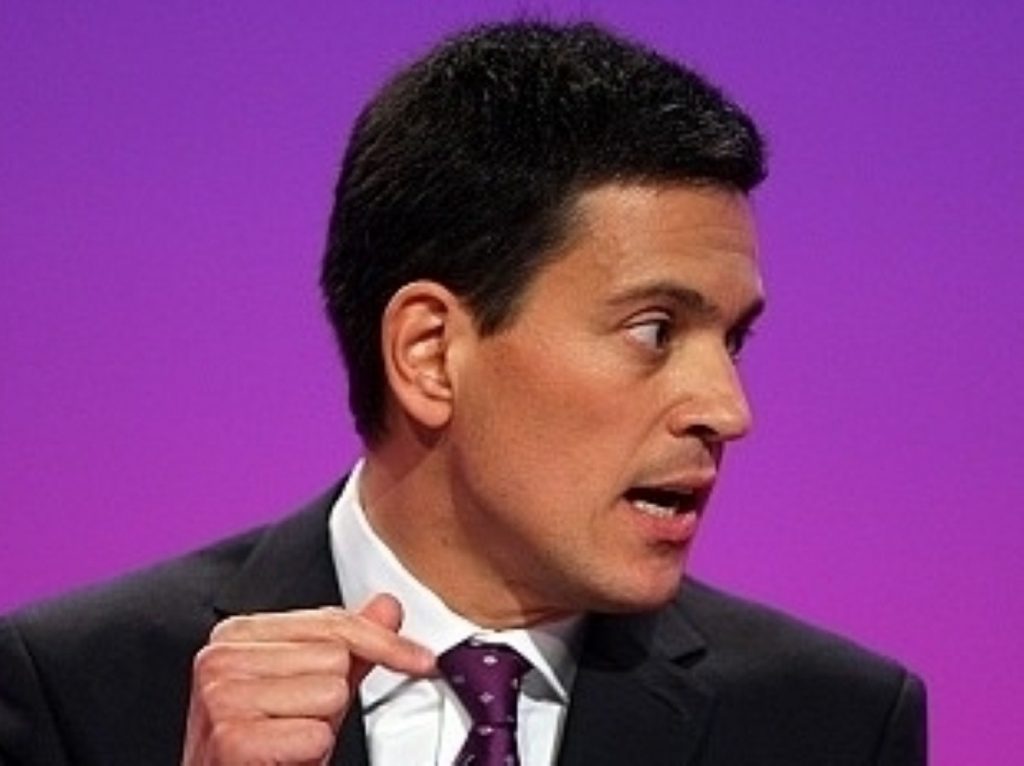David Miliband attacks ‘immoral’ City
By Tobias Benedetto
David Miliband, the frontrunner for the Labour leadership, has criticised high finance for immoral behaviour in the run-up to the banking crisis and called for tougher regulation of the City.
Mr Miliband yesterday welcomed the idea of a cap on unfair rates of interest charged by banks, and said: “We must address fundamental questions about the causes of the financial crisis and how we build a new era of shared prosperity.
“That means rebalancing the economy, ensuring fair wages at the top and the bottom, tackling rip-off lending while extending new sources of credit to new businesses, and ensuring a more environmentally sustainable capitalism.”


The shadow foreign secretary added: “The explosion of pay inequality over the last three decades, and the continuing scandal of the gender pay gap, is an ethical as well as an economic issue.
“Mega pay awards and bonuses, linked to activity rather than success, violate basic principles of merit and justice. We need to find ways to re-establish moral norms.
“Unacceptable concentrations of market power, as with unaccountable state power, are not just economically dangerous as we saw in the credit crunch to many in this country, they are also immoral.”
The views were expressed as part of his speech at the first cross-party event organised by the Demos Open Left project and Soundings, each seen to represent the centre right and centre left of the party respectively. Backbencher Jon Cruddas, who ruled himself out the leadership race last week and is thought to favour the elder Miliband, also spoke at the event.
Mr Miliband’s comments could tap into party anger at banks and strengthen his position as the frontrunner for the leadership. With less than a week left for Labour MPs to make their nominations, he has secured 54 while his brother, Ed, has 42. Ed Balls has 27, and needs six more to get on the ballot. Andy Burnham has 17, John McDonnell five and Diane Abbott one.
Today Ed Miliband will also try to appeal to fury at the runaway City riches when he publishes a guide for members to follow to set up a campaign for the living wage.
“We must not think of being in opposition as simply a matter of political point-scoring or posturing,” he is expected to say.
“Instead, the Labour party should continue to work as a social and campaigning force for good, working with other progressive activists to achieve change that makes a difference to people’s lives.”
Mr Balls also discussed the issue of Labour’s attitude to the City in an article for the magazine Tribune. He said: “Who can now doubt that, despite the tougher measures we brought in, financial regulation was not tough enough?”









